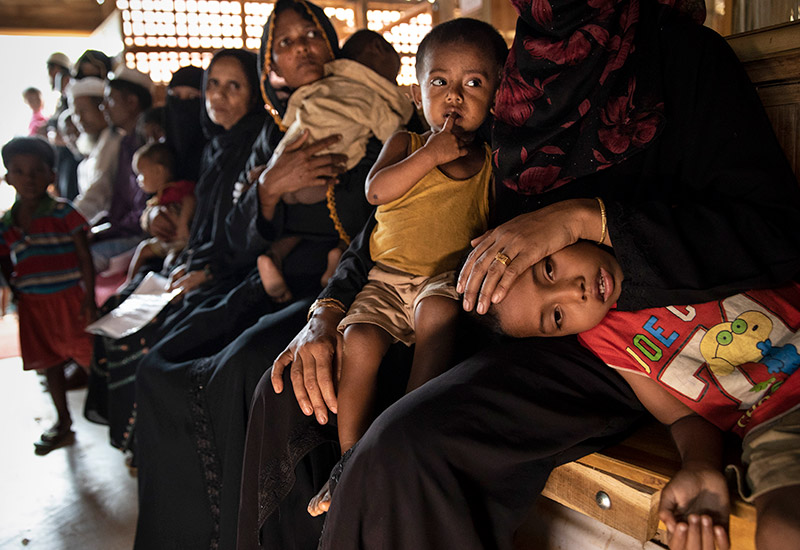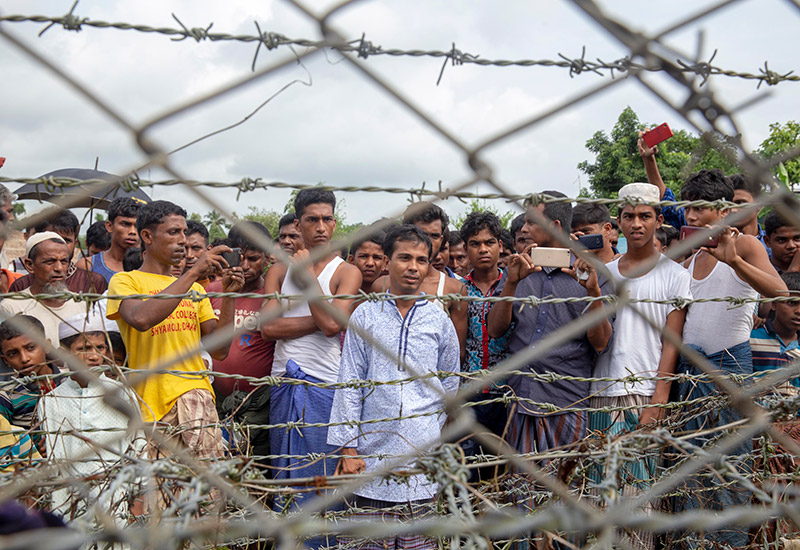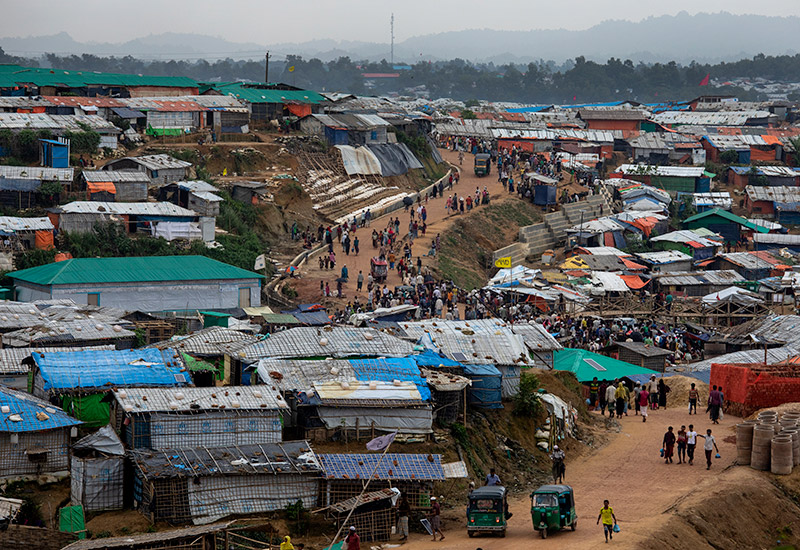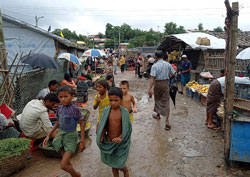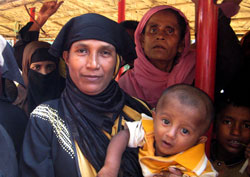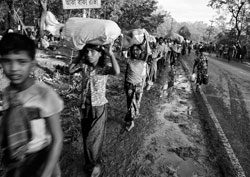The Rohingya: One Year Later
By Naomi Steinberg, Senior Director, Policy and Advocacy
Aug 28, 2018
This August 25th marked a somber anniversary. One year ago, the military and armed militias in Myanmar began a coordinated campaign targeting the Rohingya community in Rakhine State using grotesque tactics, including throwing babies into fires, raping women, and burning down villages. More than 700,000 Rohingya fled for their lives to neighboring Bangladesh.
In a new report, a United Nations panel called for six military officials in Myanmar to be prosecuted in the International Criminal Court on genocide charges. The report states, “The crimes in Rakhine State, and the manner in which they were perpetrated, are similar in nature, gravity and scope to those that have allowed genocidal intent to be established in other contexts.”
The report’s harsh tone and damning language made it clear that there has been systemic oppression and persecution of the Rohingya, and the military is largely to blame.
“The process of “othering” the Rohingya and their discriminatory treatment started long before 2012,” the report states. “Their extreme vulnerability is a consequence of State policies and practices implemented over decades, steadily marginalising the Rohingya.The result is a continuing situation of severe, systemic and institutionalised oppression from birth to death.”
The panel detailed crimes against humanity, possible war crimes, and gross human rights violations.
Thousands of Rohingya, a Muslim minority group, are still fleeing to Bangladesh. There are now more Rohingya living in exile in Bangladesh than there are in Myanmar. In Cox’s Bazar, Bangladesh, more than one million Rohingya people are living in bamboo and sheet shelters in what has become the world’s largest refugee camp.
Rohingya refugees in Bangladesh, just like the vast majority of refugees around the world, want to return to their home country. However, they cannot return to Myanmar until conditions improve there, and they can be confident that they will be safe, secure, able to work and move freely, worship as they choose, and have equal access to citizenship. Until these conditions are met, no Rohingya refugees should be forcibly returned. Returns can only happen if they are voluntary and meet accepted international standards.
The U.S. should work with other countries to provide additional humanitarian support to help ensure that the needs of Rohingya refugees are met in Bangladesh. The U.S. has already provided assistance to refugees in Bangladesh and to displaced ethnic and religious minorities in Myanmar, but significant funding gaps remain.
HIAS will provide updates on the Rohingya refugee crisis and ways to respond because speaking out in the coming months will be an important part of letting our elected officials know that the American Jewish community expects the U.S. to take a leadership role in the face of genocide.
For years, the United States was the world’s leader on resettling Rohingya refugees. We can do it again. The American Jewish community wants the U.S. to continue to welcome Rohingya refugees, just as this country did for many of our families who also fled religiously motivated persecution.
